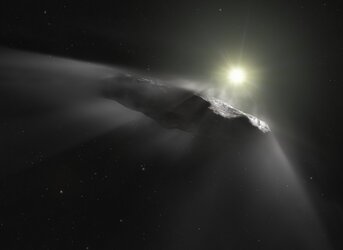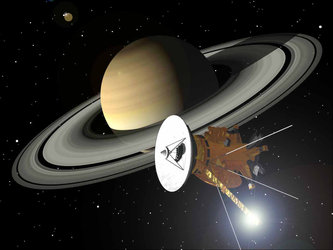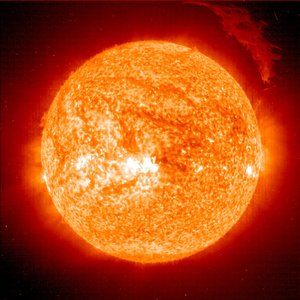20 August
2001: On 22 August 2001, Sir Fred Hoyle died. A British astronomer and founder of the Institute of Astronomy at Cambridge, he was best known for his contributions to knowledge about the evolution of the Universe. He coined the term 'The Big Bang' although he was the foremost proponent of the opposing theory.
The 'steady-state' theory says that the Universe is expanding and that matter is being continuously created to keep the mean density of matter in space constant.
Over time, belief in a 'steady-state' Universe as Hoyle had proposed was shared by fewer and fewer scientists because of further evidence for a 'Big Bang' origin of the Universe.
1977: On 20 August 1977, NASA's Voyager 2 spacecraft was launched from Cape Canaveral aboard a Titan-Centaur rocket. Between them, Voyager 1 and 2 explored all the giant planets of our outer Solar System: Jupiter, Saturn, Uranus and Neptune. They also explored 48 of their moons and the unique system of rings and magnetic fields those planets possess.
1908: On 20 August 1908, Valentin Petrovich Glushko was born.
Glushko was a Soviet rocket scientist, a pioneer in rocket propulsion systems and a major contributor to Soviet space and defence technology.
Glushko worked with renowned rocket designer Sergey Korolyov from 1932 to 1966. The two had a triumphant year in 1957, when they launched the first intercontinental ballistic missile in August and sent the first artificial satellite, Sputnik I, into orbit in October. In 1974 Glushko became chief designer for the Soviet space programme, helping to oversee development of the Mir space station.















 Germany
Germany
 Austria
Austria
 Belgium
Belgium
 Denmark
Denmark
 Spain
Spain
 Estonia
Estonia
 Finland
Finland
 France
France
 Greece
Greece
 Hungary
Hungary
 Ireland
Ireland
 Italy
Italy
 Luxembourg
Luxembourg
 Norway
Norway
 The Netherlands
The Netherlands
 Poland
Poland
 Portugal
Portugal
 Czechia
Czechia
 Romania
Romania
 United Kingdom
United Kingdom
 Slovenia
Slovenia
 Sweden
Sweden
 Switzerland
Switzerland
































